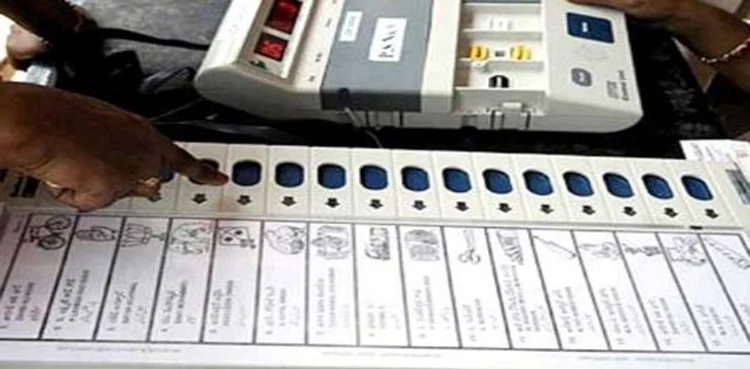In the ever-evolving landscape of electoral processes, electronic voting machines (EVMs) have emerged as a revolutionary force, transforming the way nations conduct their elections.
Originating in the city of Greenfield, Iowa, USA, in 1964, the first official usage of EVMs marked a watershed moment in the history of democratic practices, setting the stage for their widespread adoption across the globe. The history of EVM usage globally reflects a significant shift from traditional paper-based methods to technologically advanced systems.
Since then, countries worldwide have embraced this digital shift, recognizing the potential benefits of technology in streamlining electoral procedures. Brazil, a pioneer in EVM adoption, implemented them on a large scale in 1996. India followed suit, gradually transitioning from 1982 and fully adopting EVMs nationwide by 2004. Venezuela, too, joined the electronic voting wave in 1998, albeit facing controversies over alleged manipulations.
Despite initial concerns about security and transparency, authorities worldwide have acknowledged the undeniable manifold benefits of EVM that have proven to be advantageous, reducing human errors, ensuring faster result tabulation, and contributing to increased voter turnout globally. These machines offer enhanced accessibility, catering to individuals with diverse needs through features like audio assistance and tactile interfaces, ensuring inclusivity in the electoral process. By automating the voting and counting processes, the chances of human errors associated with manual vote counting are significantly reduced. This not only enhances the overall accuracy of election results but also eliminates misinterpretation of voter intent.
States like India, Brazil, Estonia, and the Netherlands serve as international examples of successful EVM implementation. Lessons learned from these experiences emphasize transparency, robust cybersecurity measures, and public awareness as crucial elements for successful integration. However, challenges and concerns exist, including technical challenges, security issues, and public skepticism. Technical challenges encompass the risk of malfunctions during the voting process, while security concerns revolve around the susceptibility of EVMs to hacking. Public skepticism necessitates comprehensive public awareness campaigns to build trust in the new voting technology.
The legal and regulatory framework for EVMs in Pakistan is crucial for their successful implementation. Election laws, Election Commission guidelines, security and integrity measures, public consultation, certification and testing, data protection, and privacy safeguards are vital components of this framework. The framework must also address challenges, provide dispute resolution mechanisms, and mandate capacity building and training for election officials.
EVM features like audio assistance, minimizing errors through automated processes, and reducing paper consumption align with environmentally conscious practices. Notably, EVMs contribute to streamlined logistics, eliminating the challenges associated with transporting and storing physical ballots. Their role extends to rapid results dissemination, fostering transparency and trust in democratic processes. Additionally, EVMs act as a deterrent to fraud with security features like encryption. In the digital age, these technologically advanced systems are shaping the future of democracy, ensuring efficiency, accuracy, and inclusivity in electoral procedures.
In as much, strategies to inflate public awareness and acceptance of EVMs include public service announcements, educational materials, interactive workshops, online platforms, community engagement, and transparency initiatives. Building trust through regular checkups, live streaming of counting, access to public records, and addressing misinformation is essential.
In a similar fashion, the feasibility of EVMs depends on a balanced approach, considering their efficiency while addressing concerns about technological vulnerabilities. Cost analysis in the context of Pakistan reveals initial setup costs, ongoing maintenance expenses, and the need for careful planning. Correspondingly, the recommendations for implementation of EVMs procure transparency and monitoring, anti-corruption measures, stable internet access, comprehensive training, public awareness, independent auditing, and dispute resolution mechanisms for the swift, fair, and upright application of voting machines.
In a nutshell, the viability of Electronic Voting Machines (EVMs) hinges on adopting a well balanced strategy that acknowledges their efficacy while simultaneously addressing apprehensions related to technological vulnerabilities. Public awareness initiatives are crucial for successful implementation, emphasizing transparency, security, and public trust. Successful implementations in countries like Brazil and India highlight benefits such as enhanced accessibility and minimized errors.
However, challenges in Pakistan, including technical intricacies, security concerns, and public skepticism, require careful consideration. Withal, the financial aspect, encompassing setup and maintenance costs, necessitates comprehensive planning. In summation, while EVMs signify a technological progression, their integration mandates meticulous foresight, transparency, and active public involvement, informed by lessons derived from international experiences and adeptly managing challenges to substantiate the fortification of democratic principles through equitable and secure electoral processes.
-Group Work by Syeda Sophia Bukhari, Hassan Khan, Aadrish Noor, Amina Afzal, Qurat-ul Ain, Zainab Tariq Ali


